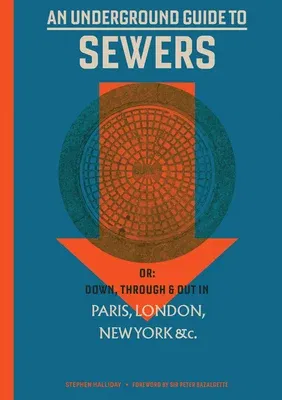A global guide to sewers that celebrates the magnificently designed
and engineered structures beneath the world's great cities.
The sewer, in all its murkiness, filthiness, and subterranean seclusion,
has been an evocative (and redolent) literary device, appearing in works
by writers ranging from Charles Dickens to Graham Greene. This
entertaining and erudite book provides the story behind, or beneath,
these stories, offering a global guide to sewers that celebrates the
magnificently designed and engineered structures that lie underneath the
world's great cities. Historian Stephen Halliday leads readers on an
expedition through the execrable evolution of waste management--the open
sewers, the cesspools, the nightsoil men, the scourge of waterborne
diseases, the networks of underground piping, the activated sludge, the
fetid fatbergs, and the sublime super sewers.
Halliday begins with sanitation in the ancient cities of Mesopotamia,
Greece, and Imperial Rome, and continues with medieval waterways (also
known as "sewage in the street"); the civil engineers and urban planners
of the industrial age, as seen in Liverpool, Boston, Paris, London, and
Hamburg; and, finally, the biochemical transformations of the modern
city. The narrative is illustrated generously with photographs, both old
and new, and by archival plans, blueprints, and color maps tracing the
development of complex sewage systems in twenty cities. The photographs
document construction feats, various heroics and disasters, and
ingenious innovations; new photography from an urban exploration
collective offers edgy takes on subterranean networks in cities
including Montreal, Paris, London, Berlin, and Prague.

